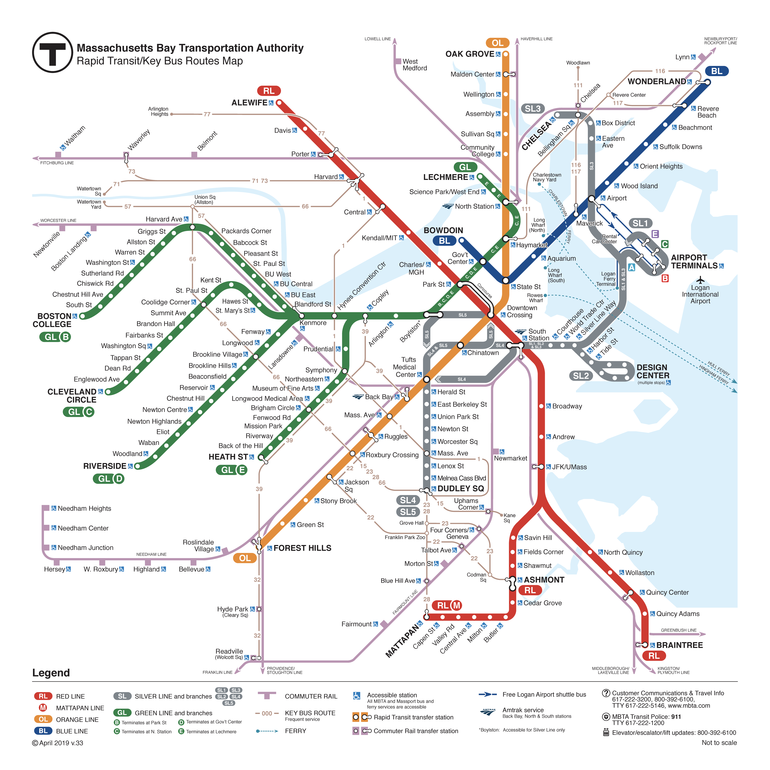An independent panel’s finding that “safety is not the priority at the T” did not come as a surprise to the longtime leader of an MBTA watchdog group, who warned this week that the agency will need new revenue to fix its deep-rooted problems.
In an interview with WBZ’s Jon Keller that aired Sunday, MBTA Advisory Board Executive Director Paul Regan said the T’s faulty safety culture developed “over a very long period of time.”
“Yes, it’s safe, but it could be a hell of a lot safer,” Regan, whose organization represents the 175 cities and towns served by the T, said during the interview. “This report, all 60-odd pages of it, highlights exactly how much work the T needs to do before people like me or people at the T can look you straight in the eye and say, ‘No, it’s absolutely safe.’ It’s not. It’s got serious problems that need to be fixed. But most of those problems are going to be faced by the staff as opposed to the customers.”
The three-member panel identified factors behind the lackluster safety focus, including a workforce that fears retaliation for flagging problems, overemphasis on capital projects rather than precautionary operating expenses, and frequent turnover in leadership.
Steve Poftak, who has been the T’s general manager since January, “does not possess in-depth transportation operations and safety knowledge, which are the core functions of the organization that he is tasked with managing,” the panel wrote in its final report.
Regan did not criticize Poftak directly, describing him as “a very earnest and well-meaning person” and saying he is more experienced than some of his predecessors.
“But he’s not surrounded by a staff that by and large comes from the industry and understands it,” Regan said.
Poftak worked in the Executive Office of Administration and Finance during the Romney administration before leading the Pioneer Institute’s research from 2005 to 2012. He was appointed to the Department of Transportation Board and the T’s Fiscal and Management Control Board in 2015, and briefly served as interim general manager during the summer of 2017 before returning to the role in a permanent capacity this year.
Poftak, who last week called the report “sobering,” also still has the support of his higher-ups.
Gov. Charlie Baker said while unveiling the safety report that he is “fully confident” the general manager can ensure changes are made. During a meeting on Monday, Braintree Mayor and MassDOT board member Joseph Sullivan said Poftak “has done a very steady-handed job,” while FMCB Chair Joseph Aiello praised Poftak and his deputy, Jeff Gonneville.
“The T is very far away from our target of adopting and implementing best practices in operational safety,” Aiello said. “There’s much work to be done, and that will take time, talent and money, to which we are all committed. The board is fully committed that we have the right leadership, the right general manager, the right deputy general manager in place, to move into this transformation.”
Regan slammed the MBTA’s financial setup, arguing that many of its problems stem from insufficient resources and a recurring annual budget deficit. Since 2000, when the Legislature designated a single percentage point of the sales tax as the T’s primary funding mechanism, the transit agency has been “lurching from crisis to crisis,” Regan said.
The so-called forward funding law was supposed to ween the MBTA off of regular bailouts form the Legislature, but the agency has required special aid allotments over the years, despite regular fare increases.
“We had a few good years — 2001, 2002, 2003 — and then the deficiencies of the funding mechanism started to catch up with us,” Regan said during the interview. “So basically, the MBTA almost always runs a deficit.”
T budget-writers are forecasting an operating deficit between $38.6 million and $42.2 million for the current fiscal year, and agency finances would be worse off if the MBTA were not on track to benefit from its sales tax revenues running $51 million above expectations.
The MBTA will likely close the deficit using a portion of a $127 million legislative appropriation intended for capital projects, MBTA Chief Administrative Officer David Panagore said Monday.
Poftak told the board that he will unveil a formal work plan in March to implement changes recommended in the safety report, and both he and members of the panel have said the improvements will require additional funding.
The House is set to debate new forms of transportation revenue to boost the T’s coffers in January. Lawmakers are weighing a gas tax increase and other revenue options; Gov. Baker opposes raising the gas tax and says the state has adequate revenues to meet its transportation needs.
Asked if he supports any specific strategies to direct more funding to the MBTA, Regan noted that he served on the Transportation Finance Commission. In 2007 that panel recommended an 11.5 cents per gallon increase to the gas tax.
The Legislature in 2013 decided to raise the gas tax by 3 cents to 24 cents per gallon and indexed it to inflation, with indexing opponents then successfully moving to repeal the indexing provision at the ballot box.
Real estate transfer taxes or taxes designed to reduce congestion by influencing drive times could be explored as well, he said. The coming year, he said, will be pivotal for the T.
“We want safe and reliable service,” Regan said. “That’s what everybody says all the time. The funding is inadequate for that right now.”

